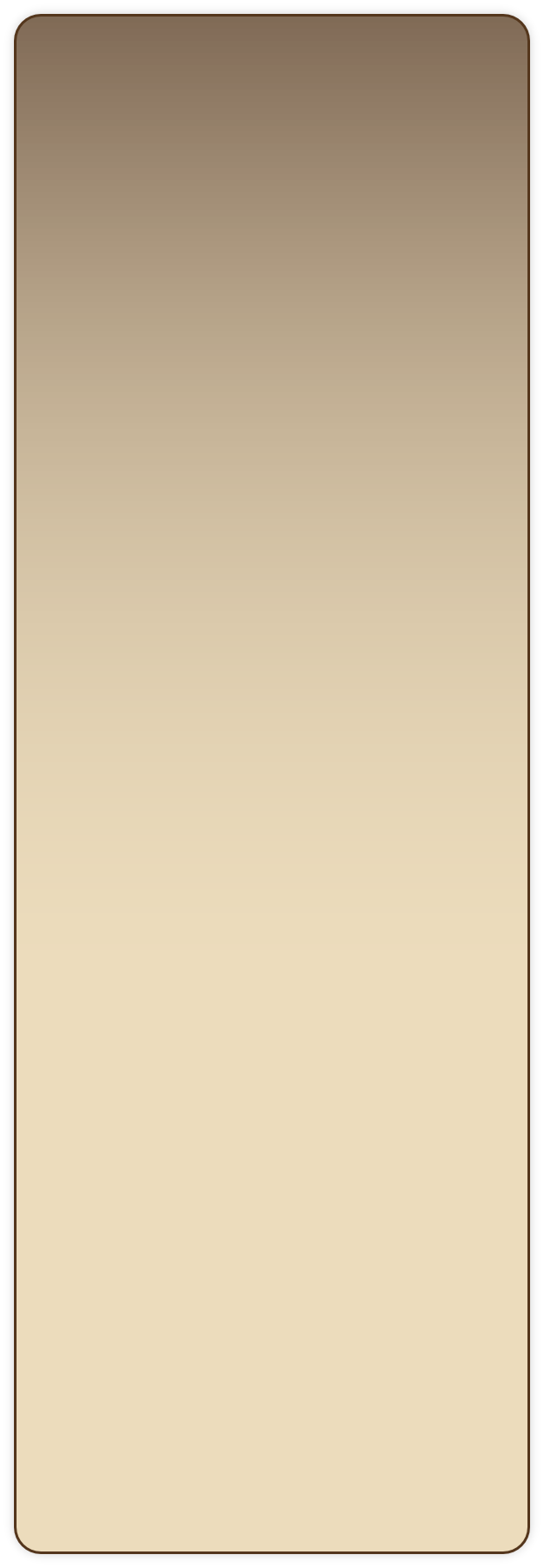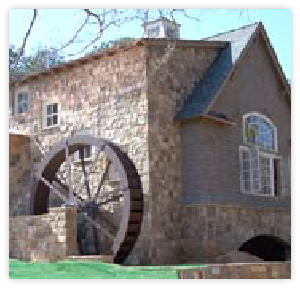

© Waterwheel Manufacturing, Inc. 2022 191 Industrial Park Rd, NC Franklin 28734 828.369.5928 waterwheel@dnet.net

Can I power My home?
Efficiency of a Waterwheel
Remember to include the Efficiency Factor when
You Calculate HP
Overshot
85 to 90% Metal Waterwheel
70% for a Wooden Waterwheel
Undershot
60% Poncelet Waterwheel
River Wheels
30% River Wheel (Simple Paddles)

You need to determine how much power your site potentially might have.
For an Overshot Waterwheel
To do this you will need to know two things, the quantity of water and the height of the water fall. From this you can determine the Horsepower at the axle of the waterwheel.
One method to determine the quantity of water is to do a Weir Gate measurement. To use this method, click on the link for the Weir Gate Page.
** The height is the number of feet off the ground the water falls over the waterwheel.
** Weir gate numbers are in CuFt/Min. Remember to divide the number by 60 to get CuFt/sec. Then use the formula below to get your power number.
Horsepower = Constant x Quantity x Height x Efficiency
or
HP = Constant x (Cubic Ft / Sec of water) x (Height of Fall) x (Eff. of Wheel)
Waterwheel Horsepower @ Shaft 85% Eff Factor for the waterwheel
WaterWheel Diameter
Gallons Per Min 10 Feet 12 Feet 15 Feet 18 Feet 20 Feet
100 .215 .258 .322 .387 .430
200 .430 .515 .644 .773 .859
300 .644 .773 .966 1.160 1.289
400 .859 1.031 1.286 1.546 1.718
500 1.107 1.289 1.611 1.933 2.148
800 1.718 2.062 2.577 3.093 3.436
1000 2.148 2.577 3.222 3.866 4.295
1500 3.222 3.866 4.832 5.799 6.443
2000 4.295 5.155 6.443 7.732 8.591
3000 6.443 7.732 9.665 11.598 12.886
Example
Horsepower for 800 gal/min @ 15 Feet
*****
Horsepower = C* Q* H* E
*****
C= Constant (See Below)
Q= Quantity of water
(for cu/ft/sec multiply gal/min by 0.002228 )
H= Distance over Waterwheel
E= Efficiency of the Wheel
****************************************
Gallons/min to Cubic Feet/Sec
100 Gallons = .223 Cu/Ft/Sec.
200 Gallons = .446 Cu/Ft/Sec.
300 Gallons = .668 Cu/Ft/Sec.
400 Gallons = .891 Cu/Ft/Sec.
500 Gallons = 1.114 Cu/Ft/Sec.
800 Gallons = 1.783 Cu/Ft/Sec.
1000 Gallons = 2.228 Cu/Ft/Sec.
1500 Gallons = 3.342 Cu/Ft/Sec.
2000 Gallons = 4.456 Cu/Ft/Sec.
3000 Gallons = 6.680 Cu/Ft/Sec.
________________________________
Horsepower = .1135 * 1.783 * 15 * .85
Horsepower = 2.58
Where did the constant come from
Constant = (Water Weight lbs.) / (foot-lbs/sec)
Constant = (62.42 / 550.221)
Constant = 0.113491
1 Horsepower = 746 Watts
To get electricity out of a waterwheel you will have to gear the RPMs of the waterwheel (generally from 5-10 rpm”s up t0 500 - 1700 rpm’s) and then run it through a generator or a DC motor to charge a battery bank. This will generally cut your power at the axle HP by almost 1/3 to 1/2. A waterwheel is really designed to do mechanical work.
Most homes require 4000 to 7000 watts of power for simple operations.
| Contact Us |
| Waterwheel Types |
| Poncelet |
| Artisan Wheels |
| Waterwheel Design |
| Our Factory |
| Pricing |
| Waterwheel Coatings |
| Why Metal Waterwheel |
| Fitz Waterwheel History |
| Weir Gate |
| SPOOM |
| Links |
| Paddlewheel Patent |
| Legal Copyright Notice |